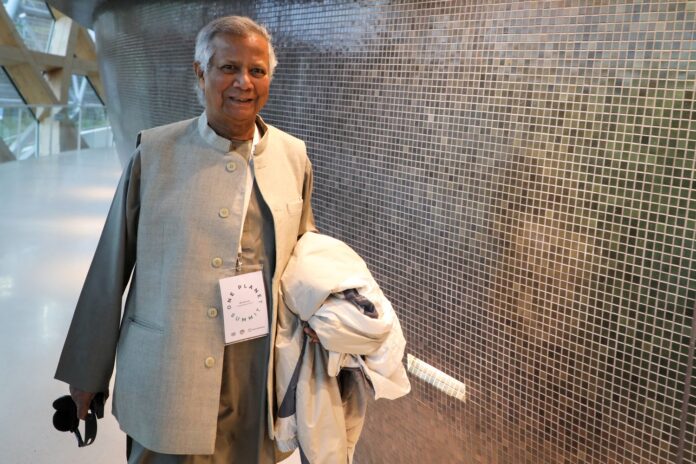Over 170 prominent global figures have issued an appeal to Bangladesh’s Prime Minister, Sheikh Hasina, urging her to halt what they view as the “persecution” of Nobel laureate Muhammad Yunus. Known internationally as the “banker to the poor,” Yunus has been facing numerous lawsuits, with more added recently. The collective letter characterises these legal actions as an attack on democracy.
In response, Prime Minister Hasina offered a stern rebuttal, accusing the 83-year-old Yunus of seeking international attention through this statement. She, however, welcomed international experts to assess the ongoing legal proceedings against Yunus. It’s worth noting that while Yunus is celebrated in the Western world for his pioneering microloan concept, Hasina regards him as a public enemy, repeatedly labelling him a “bloodsucker” of the poor and criticising his Grameen Bank for high interest rates.
Grameen Bank, founded by Yunus in 1983, provides small, long-term loans to help impoverished individuals start their own small businesses, a model that has gained global recognition. In 2006, both Yunus and the bank were honoured with the Nobel Peace Prize.
The open letter, signed by influential figures such as Hillary Clinton, Richard Branson, and Bono, calls for an end to the “continuous judicial harassment” faced by Yunus, expressing a sincere desire for him to continue his groundbreaking work without persecution.
The cases against Yunus include accusations from former Grameen Telecom employees who claim he deprived them of job benefits. Additionally, he recently faced trial for alleged labour law violations. These legal challenges come at a critical time, just months before Bangladesh’s next general election, raising concerns about the need for free and fair polls.
Yunus has faced other legal issues in the past, including being forced out of Grameen Bank in 2011 and facing accusations of tax evasion in 2013.
Some experts suggest that Prime Minister Hasina’s opposition to Yunus may stem from resentment toward his global acclaim, potentially overshadowing her late father, Sheikh Mujibur Rahman, who is revered by many Bangladeshis for leading the country to independence. These sustained attacks on Yunus also raise concerns about a growing intolerance of dissent, posing a threat to the democratic principles upon which Bangladesh was founded.





















